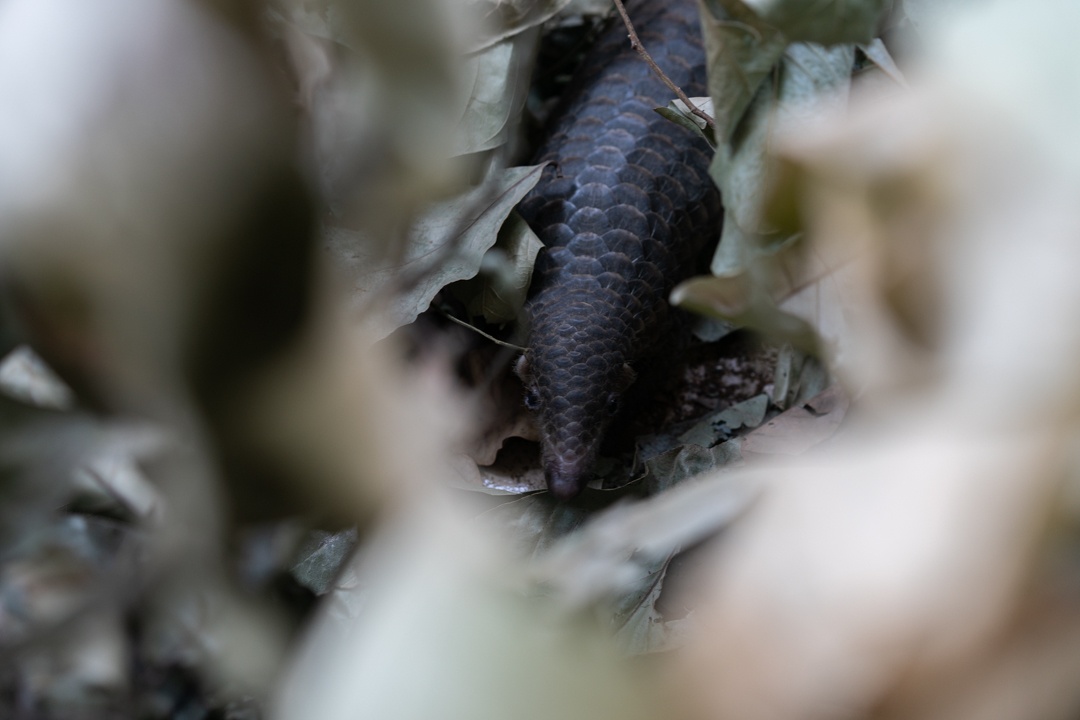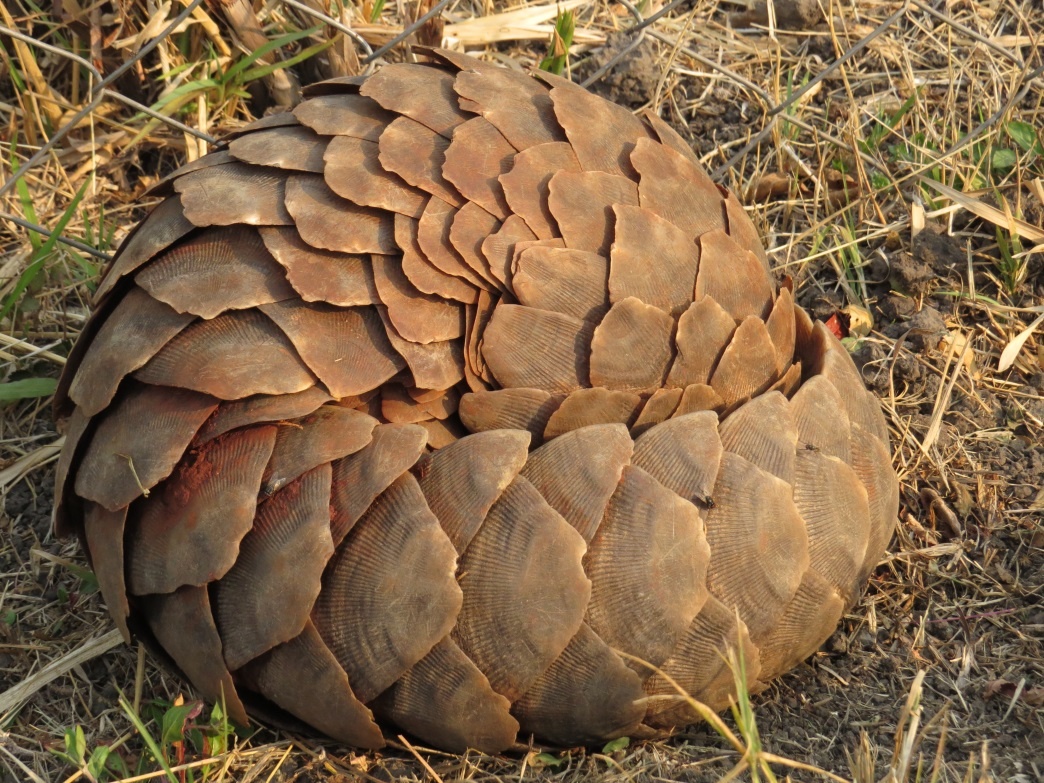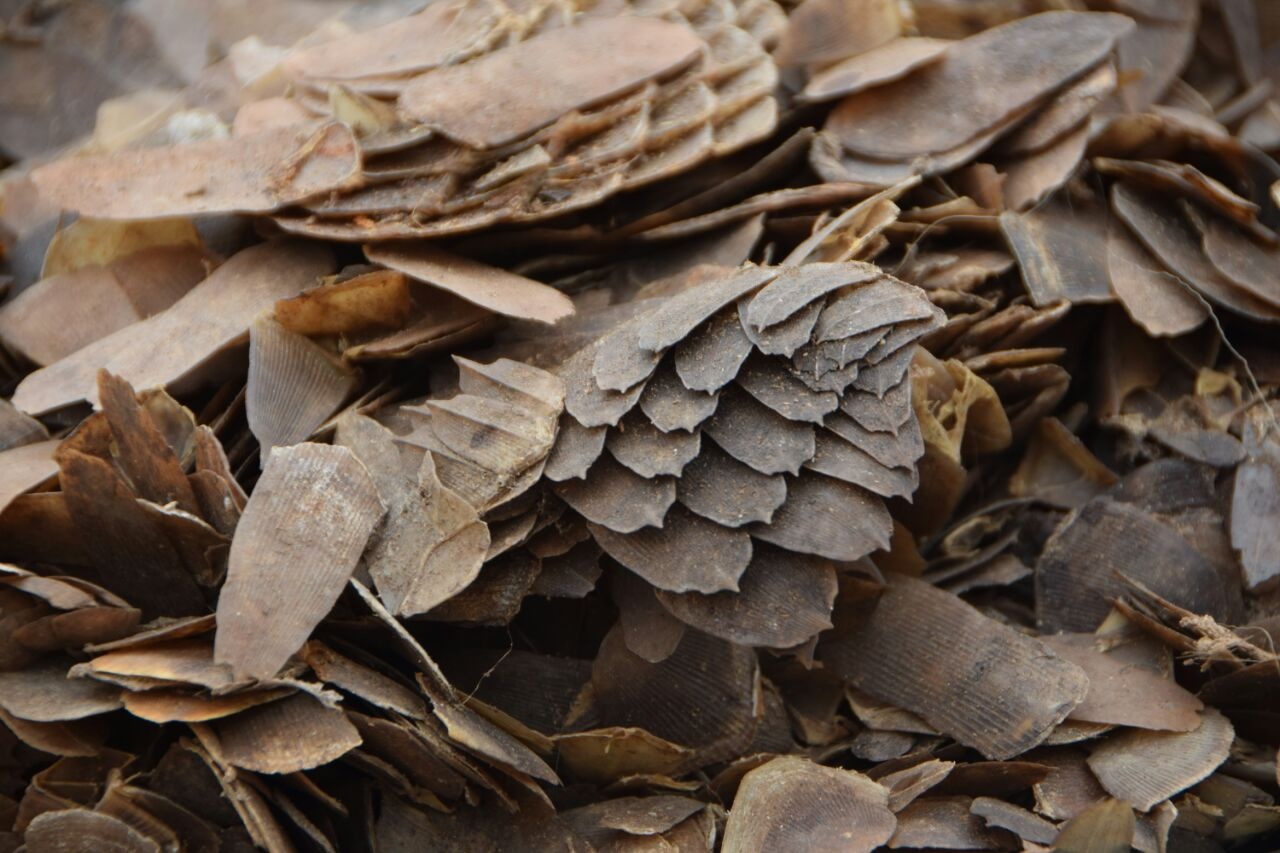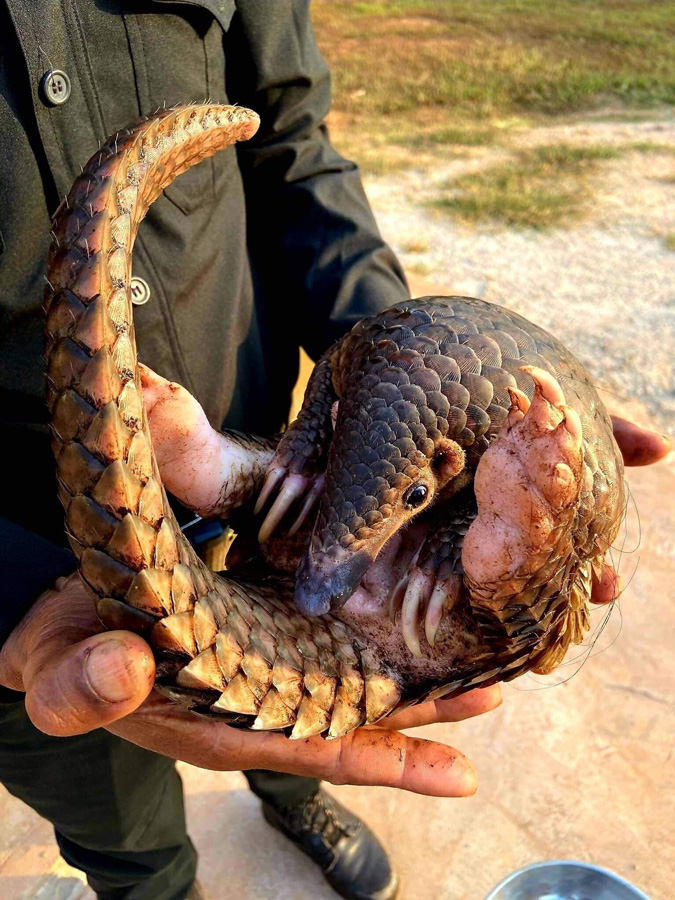While the jury remains out, from the early stages of the pandemic the origin of the Sars-Cov-2 virus that causes Covid-19 has been firmly linked to the wildlife trade.
At the outbreak’s onset, the Chinese government asserted that ground zero was a “wet market” in Wuhan, where a slew of different animal species were kept together in close quarters. Since then, researchers have pointed the finger at bats and pangolins in particular as potential sources for the virus, with a May study published in the journal Science Advances suggesting that there may be a third still unknown species involved.
With the worldwide death toll reaching over half-a-million, the profound impact on the global economy, and the wildlife trade’s heightened association with spreading disease, conservationists anticipated that one major beneficiary of this pandemic might be the heavily-trafficked pangolin, as well illegally traded wildlife generally.
The most optimistic among them even considered a major resurgence of threatened species a possibility, with American ecologist Michael Marshall asking can Covid-19 be a blessing for pangolins? when writing for The Guardian in April.
That question remains crucial because, as it stands, the survival of this mammal is unclear at best. Despite the Convention on the International Trade in Endangered Species (CITES) international ban on the trade of pangolins, three out of the eight pangolin species are critically endangered, including the Sunda pangolin (Manis javanica) which is native to Cambodia. Three other pangolin species are endangered and the rest are classified as vulnerable.
Between August 2000 and July 2019, more than a million pangolins were trafficked globally, destined predominantly for Asia, mainly China and Vietnam, making the pangolin the world’s most trafficked animal.
But conservationists’ hopes of a downturn in the trade are not materialising. TRAFFIC, an NGO that monitors the global wildlife trade, has said the impact of the pandemic in the industry has been negligible at best and that any changes in the volume of animals trafficked are likely short-term.
Trafficking continues despite restrictions, albeit at a reduced scale … with high-level criminal networks adapting to resume operations to previous levels
Elizabeth John, TRAFFIC’s senior communications officer, says that there is nothing to indicate “a significant rise or fall in illegal wildlife trade in general”.
She goes on to point out that the international trafficking of pangolin parts through Southeast Asia continues largely unabated, exemplified by a particularly large six-tonne seizure of African pangolin scales in Malaysia in April. TRAFFIC’s most-recent collated data indicated that as of March, there had been eight seizures of live pangolins worldwide in 2020, a similar rate to 2019 in which there were 34 seizures for the whole year.



The Wildlife Justice Commission, an international foundation that aims to help dismantle global wildlife trade networks, is similarly downbeat. A report published by them on April 29 concluded that “trafficking continues despite restrictions, albeit at a reduced scale”, and that “high-level criminal networks are adapting to resume operations to previous levels”.
The findings suggest, it would seem, that any reduction in trade is merely temporary as supply chains are disrupted by border closures and travel restrictions implemented by governments around the world.
Uptick in the Kingdom
While things do not bode well at a regional or global level, there seems to be even less room for optimism when looking at Cambodia.
According to Wildlife Alliance (WA), among the main wildlife conservation players in the Kingdom, the wildlife black market has gained momentum since the pandemic began, with the number of wildlife trafficking cases reported on Facebook increasing considerably. WA’s Wildlife Rapid Rescue Team (WRRT), Southeast Asia’s only wildlife law enforcement unit, has conducted nearly 30 crackdowns on illegal sales of wildlife parts and wildlife meat since the pandemic began.
“If anything, we are noticing an increase in poaching and smuggling, rather than the much hoped for decrease that everyone was expecting,” says Suwanna Gauntlett, WA’s Founder & CEO. “Our Wildlife Alliance rangers on the ground are witnessing more poachers coming into the forest with guns and snares.”
The main hotspot is Cambodia’s border with Vietnam that also has a high-level of illegal deforestation and poaching, she notes.
These findings line up with government discourse. Cambodian Ministry of Environment spokesman Neth Pheaktra said that rare and critically endangered wild animals continue to be threatened by hunting, trapping and habitat loss.
“In the six months of 2020, we noticed endangered wild animals killed by traps and snares, including six banteng, wild buffalos and hornbills,” he said.
One explanation for this trend – the wildlife trade increasing when many expected it to decrease – can be found in the effect the pandemic has had on the economically vulnerable. Struggling to make ends meet in a faltering economy, many have resorted to poaching for income. This is a trend that has been observed in many countries in Africa during lockdown, with Cambodians finding themselves in a similar situation, a BBC article authored by Alexander Matthews in May suggested.
But there are other potential factors, including local perceptions of the trade and weak law enforcement, with local conservation NGOs noting that consumers in Cambodia don’t consider themselves part of the bushmeat trade network and are unaware of its impact.

In a 2018 study, NGO Flora & Fauna International pointed out that Cambodians that eat wildlife “don’t feel they have any legal responsibility and assume that they are not liable to any illegal action”. Moreover, while Cambodia has laws prohibiting wildlife trade and consumption, this legislation does not cover non-native species. This is compounded by low penalties and weak enforcement that do little to deter traders and consumers. Given how unlikely it is that they are caught and the weak punishments involved if apprehended, many traders are willing to take the risk.
Will the world learn their lesson?
While the trade of certain wildlife has slowed in parts of Southeast Asia, conservationists are confident that this is only temporarily, with it will likely to be business as usual as soon as lockdowns around the world are eased and travel restrictions lifted. However, there are signs for optimism, with the pandemic providing small wins for conservationists.
In the wake of the virus outbreak, China banned the consumption of wildlife for food, with Vietnam also announcing similar legislation. And in early June, China’s Health Times newspaper announced the country’s move to remove pangolins from the official list of traditional Chinese medicine treatments, a week after the government raised the animal’s protected status to the highest possible level.
While some conservationists celebrated this as a huge step, it was reported in late June that pangolin scales were still listed in China’s 2020 pharmacopoeia, a reference book for traditional Chinese medicine practitioners.
Similarly, after the mammal was added to the Appendix 1 of CITES in 2016, affording the maximum level of protection possible under the pact, the trade merely shifted from meat to scales.
The world has been taught a hard lesson it won’t forget in a hurry
However, a shift in attitudes towards the wildlife trade in China may prove the biggest win. According to Yuhan Li of the University of Oxford, since the outbreak of the virus, several Chinese conservation organisations produced a questionnaire to understand public attitudes which they circulated on Chinese social media. Over 100,000 responses were received, with 90% of respondents saying they support a total ban in trade of wild animals, including food consumption, medicinal use and others.
Whether this is merely the reflection of a short-term attitude change due to the crisis remains to be seen, but Dr Richard Thomas, head of communications at TRAFFIC in Cambridge, is hopeful. He believes the hard lessons taught by the Covid-19 pandemic could have a long-lasting impact.
“The trade in civets was resumed only a few months after the SARS outbreak in 2002/2003,” he said. “But given the length and severity of the Covid-19 pandemic I would predict it will have a longer term impact.”
“The world has been taught a hard lesson it won’t forget in a hurry.”


